Doing what we can to keep our members safe.
You’re secure with United Financial Credit Union.
We are committed to helping our members avoid the threat of identity theft and to provide resources to protect yourself.
How to Protect Yourself
Never disclose any personal identifying information if requested from an unsolicited email, text message or phone call that may seem like it’s been sent from or calling you from United Financial Credit Union. They may seem reasonable to answer, but United Financial never requests information in this manner. This is considered “phishing”. Please contact United Financial CU about any such solicitation immediately or simply delete.
· Online Banking Log In Details
· Account information
· Social Security Number
United Financial will never ask you for your personal information in an email or text, never respond to emails asking for your passwords, Social Security Number, or other personal/financial information.
Scam artists take advantage of times like these to gain access to bank accounts. Protect yourself by being aware of suspicious emails, phone calls and text messages. Do not give people remote access to your computer, unless you know it is a trusted source or a repair company that you contacted. If it seems like it could be fraud, it probably is, don’t provide your personal identification (usernames, passwords, Social Security number, Debit Card number or PIN etc.) unless you are 100% certain you are dealing with a legitimate organization—one with whom you have made the initial contact. Do not click on links or download attachments from unknown email senders, and do not make purchases or donations on any unknown sites.
Here are some tips you can use to avoid becoming a victim of cyber fraud:
- Do not respond to unsolicited (spam) e-mail.
- Do not give our personal/financial information over the phone, email or text.
- Do not click on links contained within an unsolicited e-mail.
- Be cautious of e-mail claiming to contain pictures in attached files, as the files may contain viruses. Only open attachments from known senders. Scan the attachments for viruses if possible.
- Avoid filling out forms contained in e-mail messages that ask for personal information.
- If you are asked to act quickly, or there is an emergency, it may be a scam. Fraudsters create a sense of urgency to get you to act quickly.
- If you receive a check or a message stating you “won” something…but need to send money back to the original person. Do Not Do It. This is a scam. You did not win a lottery that you did not play.
Phishing is the attempt to solicit your personal information such as your username, password or Social Security Number by an untrustworthy entity. You should never reply to these requests. Instead you should delete the message and all future phishing messages. If you responded to a phishing email with your personal password, you should change your password as soon as possible.
Spoofing is a type of scam in which a criminal disguises an email address, display name, phone number, text message, or website URL to convince a target that they are interacting with a known, trusted source. Spoofing often involves changing just one letter, number, or symbol of the communication so that it looks valid at a quick glance.
Internet fraud refers to the use of Internet services to present fraudulent solicitations to prospective victims, to conduct fraudulent transactions, or to transmit the proceeds of fraud to financial institutions or to others connected with the scheme. Internet fraud can occur in email, chat rooms, message boards or on websites.
Check out our blog articles about recent scams and additional ways to protect yourself.
IDProtect
With IDProtect, you can access credit reports, plus a full suite of Identity Theft Restoration Services! Available to all checking account members.

Document Shredding
Stop into any United Financial brand location and shred your personal documents! Provided by our partner Shred Experts. Please limit shredding to one legal box per visit.

Annual Credit Report.com
Visit here to receive a FREE credit report now!

